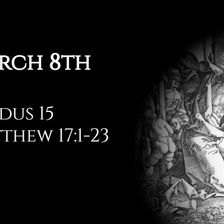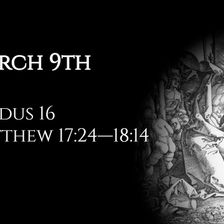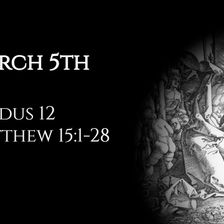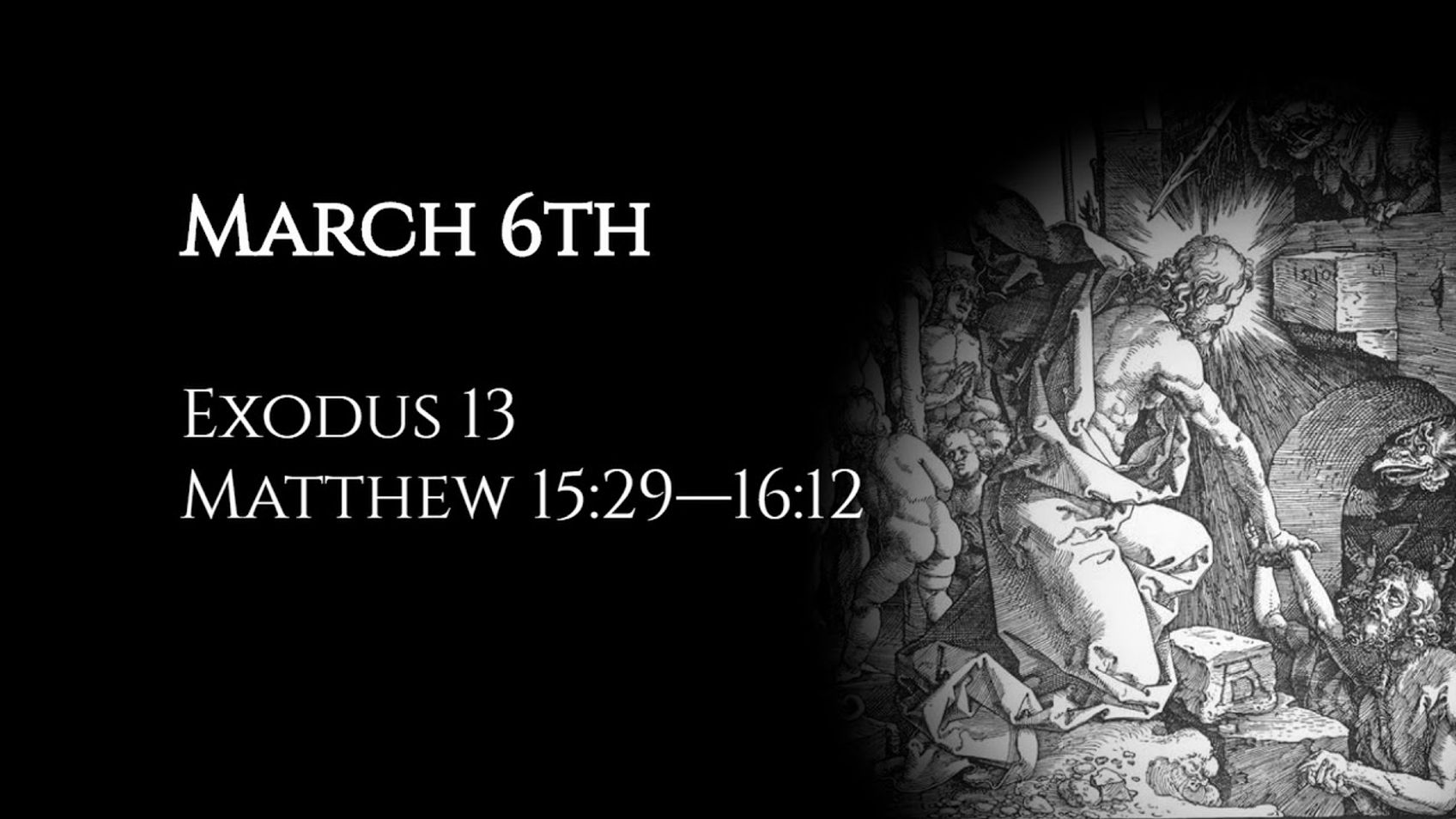March 6th: Exodus 13 & Matthew 15:29—16:12

The firstborn and the departure from Egypt. The feeding of the four thousand and the leaven of the Pharisees.
Some passages referenced:
Deuteronomy 15:19 (eating the firstborn sacrifice); Numbers 18:16, Leviticus 27:6 (principles for redemption); Numbers 3:40-49 (the firstborn males and the Levites’ substitution for them); Genesis 49:3, Deuteronomy 21:17 (the meaning of the firstborn).
Isaiah 29:13-14 (multiplied wonders not being perceived); Deuteronomy 32:5, 20-22 (an evil and adulterous generation provoked to jealousy); Acts 2:41 (three thousand on the Day of Pentecost).
Reflections upon the readings from the ACNA Book of Common Prayer (http://bcp2019.anglicanchurch.net/).
If you have enjoyed my output, please tell your friends. If you are interested in supporting my videos and podcasts and my research more generally, please consider supporting my work on Patreon (https://www.patreon.com/zugzwanged), using my PayPal account (https://bit.ly/2RLaUcB), or by buying books for my research on Amazon (https://www.amazon.co.uk/hz/wishlist/ls/36WVSWCK4X33O?ref_=wl_share).
The audio of all of my videos is available on my Soundcloud account: https://soundcloud.com/alastairadversaria. You can also listen to the audio of these episodes on iTunes: https://itunes.apple.com/gb/podcast/alastairs-adversaria/id1416351035?mt=2.
More From Alastair Roberts






More on OpenTheo















